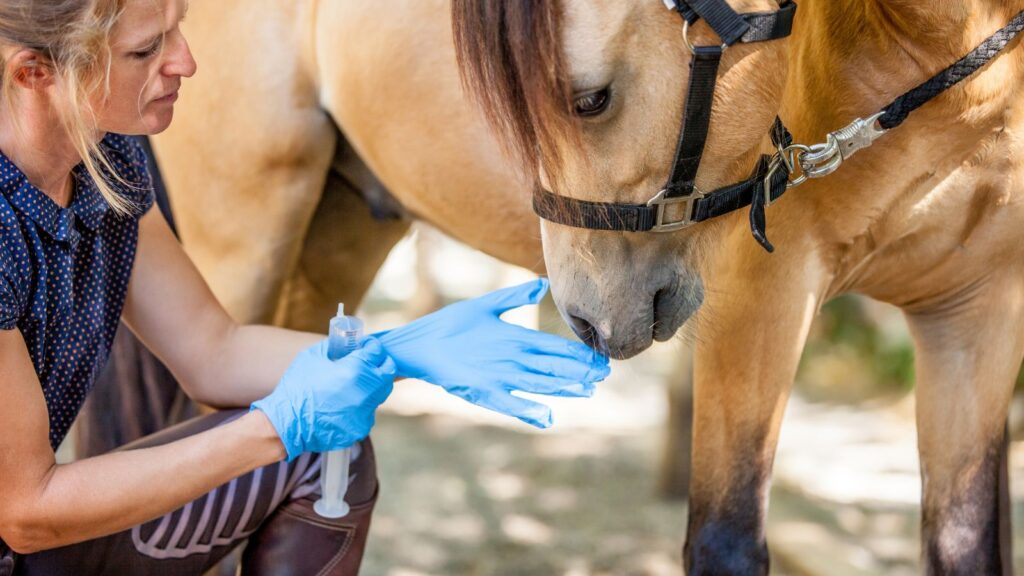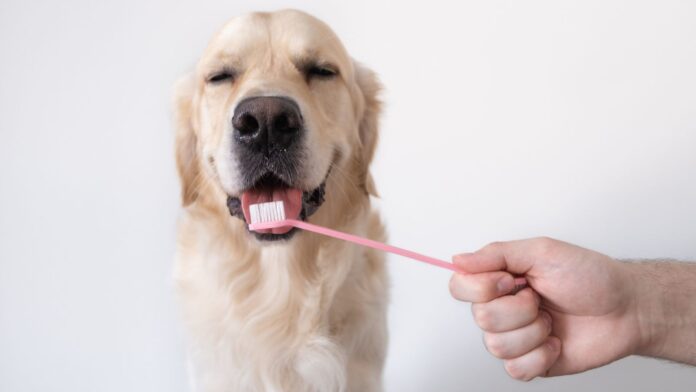Welcome to the world of homestead animal care, a rewarding yet challenging aspect of off-grid living that every pet owner should master. In this comprehensive guide, we’ll explore essential tips for ensuring your beloved animals—be they dogs, cats, chickens, goats or horses—receive the best possible care in their rural environment.
We’ll cover everything from choosing the right veterinarian and understanding nutrition needs to grooming and exercise routines.
Key Takeaways
- Proper homestead animal care is crucial for maintaining the overall health and well-being of your pets, livestock, or backyard creatures. This includes finding a trusted veterinarian, scheduling regular check-ups and preventative care, providing proper nutrition and hydration, ensuring adequate living space and shelter, providing regular exercise and playtime, and recognizing and addressing behavior issues.
- Different types of animals have specific needs when it comes to grooming, training, socialization, coop design, feeding habits in flock management. For example: Dogs & Cats require regular grooming; Chickens & Other Poultry need clean coops with ample space; Goats & Livestock require proper housing maintenance practices; Horses need adequate stabling and exercise routines.
- Prevention is always better than cure! By learning about potential risks to animal health early on (like vaccinations), you can save both time & resources while avoiding unnecessary distress in your beloved animals. It’s also important to have an emergency plan in place that accounts for all possible scenarios so you can act quickly during any crisis situation.
- Building a solid foundation for homestead animal care sets up your menagerie –and yourself–for success down the line . Regularly checking off different tasks from homestead animal care list ensures pets are happy healthy companions rather than just working farm animals
The Importance Of Homestead Animal Care
Proper homestead animal care plays a crucial role in maintaining the overall health and well-being of your pets, livestock, or backyard creatures. Whether you have a small off-grid farm or simply keep a few animals on your property for companionship, ensuring they receive consistent and appropriate care is essential.
One vital aspect of animal welfare is prevention. By learning about potential risks to animal health and applying the necessary preventative measures early on, you can save both time and resources in the long run while avoiding unnecessary distress in your beloved animals.
For example, vaccinations are instrumental in preventing infectious diseases that could spread through an entire flock or herd rapidly; proper nutrition allows them to grow strong immune systems combating common ailments more effectively.
Finding A Trusted Veterinary Care Provider

To ensure your homestead animals receive the best possible care, it’s crucial to find a trusted veterinary care provider. Choose a reputable and qualified veterinarian, schedule regular check-ups for preventative care, and develop a relationship with them to have peace of mind knowing your pets are in good hands.
Choosing A Reputable And Qualified Veterinarian
Finding a trusted veterinarian for homestead animals is crucial in ensuring their health and well-being. Look for a reputable and qualified vet who has experience treating the specific types of animals you have on your homestead.
Word-of-mouth recommendations from other pet owners in the area can be helpful, as well as online reviews.
Developing a relationship with your vet is also key. The more familiar they are with your animals, the better equipped they will be to provide personalized care and advice.
Don’t hesitate to ask questions about their qualifications or approach to animal care – a good vet will be happy to answer them.
Scheduling Regular Check-ups And Preventative Care
Taking care of homestead animals is not a task to be taken lightly. Just as we schedule appointments for our own health and well-being, it is crucial to schedule regular check-ups and preventative care for our animal companions too.
This ensures that they are healthy and happy, while also preventing any potential illnesses or diseases from cropping up. It’s important to choose a reputable and qualified veterinarian who can provide the necessary treatments, vaccines, and advice for your homestead animals.
Develop a relationship with your vet so that you can ask questions when needed, discuss any concerns you may have regarding your pet’s care, and receive personalized recommendations on how best to care for them based on their individual needs.
Developing A Relationship With Your Vet
Choosing a trusted veterinarian is vital to ensuring the health and wellbeing of your homestead animals. Once you find a reputable and qualified veterinary care provider, it’s important to develop a relationship with them.
Regular check-ups and preventative care can help catch any potential issues early on.
Building this relationship can take time, but it’s worth it in the long run for both you and your homestead animals. Your vet will become familiar with your animal’s unique needs and history, which allows them to provide more personalized care.
General Tips For Homestead Animal Care
Providing general care for your homestead animals is crucial to their health and well-being. Learn about proper nutrition, adequate living space, exercise, and behavior recognition by reading this article.
Providing Proper Nutrition And Hydration
Proper nutrition and hydration are vital to maintaining the health of any homestead animal. Depending on the type of animal you have, their dietary needs can vary greatly.
For example, chickens require a diet high in protein, while horses need a balanced mix of hay or grass and grains.
Additionally, access to clean water is critical for all animals. Make sure your pets have access to fresh water at all times by providing them with a safe and accessible source.
Consider investing in automatic waterers or setting up a rainwater collection system if you’re off the grid.
Ensuring Adequate Living Space And Shelter
Proper living space and shelter are essential for ensuring the health and wellbeing of your homestead animals. The amount of space needed varies by animal, so it’s important to do your research beforehand.
When building or purchasing housing for your animals, ensure that it is safe from weather elements such as rain or excessive heat. Consider ventilation options to prevent respiratory issues and provide adequate lighting for visibility during feeding times.
Remember that happy animals make healthy animals, so providing adequate living space and shelter will not only keep them physically fit but also mentally stimulated!
Providing Regular Exercise And Playtime
Just like us, homestead animals need regular exercise and playtime to stay healthy and happy. Whether you have dogs, cats, or livestock on your property, it’s important to make time for physical activity each day.
For dogs, going on hikes or playing fetch are great ways to get them moving. Cats love toys that encourage chasing and jumping around.
Not only does regular exercise improve physical health by keeping muscles strong and joints flexible, but it also provides mental stimulation that can help prevent boredom and destructive behavior in animals.
Plus, spending quality time with your furry (or feathered) friends through playtime helps strengthen the bond between you and your pets/livestock.
Recognizing And Addressing Behavior Issues
As a homestead pet owner, it’s important to be aware of your animals’ behavior and recognize any issues. Behavior problems can range from aggression to anxiety and can often stem from lack of socialization or training.
For example, if your dog is exhibiting signs of aggression towards other animals or people, seek professional help from a qualified trainer as soon as possible. If left unaddressed, the behavior may escalate and put not only your pet but also others in danger.
Additionally, providing regular exercise and mental stimulation for all pets can help prevent destructive behaviors such as chewing or excessive barking.
Specific Tips For Caring For Homestead Animals
Provide regular grooming, training, and socialization for dogs and cats; design a sturdy coop with easy access to food and water for chickens and poultry; maintain proper housing, grazing areas, and health maintenance practices for goats and livestock; ensure adequate stabling, grooming, and exercise routines for horses and other equestrian animals.
Dogs And Cats: Grooming, Training, And Socialization
Grooming, training, and socialization are critical components of proper care for your dogs and cats. Regular grooming helps maintain healthy skin and coat while also preventing matting or other issues that can lead to discomfort or health problems.
Training your pets is essential not only in shaping their behavior but also developing a stronger bond between you and your furry friends.
When it comes to grooming, make sure you have the necessary tools on hand such as brushes, nail clippers, and shampoo specifically designed for pets. It’s important to groom your pet regularly regardless of the length of their coat as it can help detect any potential skin issues like hot spots or rashes early on.
On the training front, positive reinforcement techniques such as clicker training can be effective in teaching basic commands like sit, stay, come when called among others.
Keywords: Pet care, Grooming, Training ,Socialization,American English Language
Chickens And Other Poultry: Coop Design, Feeding, And Flock Management
When it comes to homestead animal care, chickens and other poultry are a popular choice for many off-grid enthusiasts. Whether you’re raising them for eggs or meat, proper coop design and feeding habits play a crucial role in maintaining their health and happiness.
Your chicken coop should provide ample space for your birds to move around freely, while also protecting them from predators such as foxes or raccoons.
In terms of feeding, ensure that your birds have access to fresh water at all times, along with a balanced diet that includes quality chicken feed as well as occasional treats like fruits and vegetables.
Providing grit also helps break down their food properly in their digestive system. Flock management involves monitoring closely for any signs of illness or injury among the birds, including behavioral changes or unusual discharge from eyes/nose/vent holes etc., treating them promptly if necessary.
Goats And Other Livestock: Housing, Grazing, And Health Maintenance
It’s important to provide proper housing and grazing areas for your goats and other livestock. They need adequate space to move around freely, as well as shelter from the elements.
When it comes to grazing, ensure that they have access to a variety of vegetation. Different types of plants contain different nutrients needed for optimal health. As with all animals, regular veterinary check-ups are crucial for maintaining good health in your livestock.
Keeping up with vaccinations and deworming schedules can help prevent illnesses from spreading throughout your herd or flock.
Horses And Other Equestrian Animals: Stabling, Grooming, And Exercise
Taking care of horses and other equestrian animals on your homestead requires attention to detail. Stabling is essential in providing a safe, comfortable space for them to rest and eat.
Ensure that the stalls or barns are clean, well-ventilated, and free from hazards such as sharp objects or nails. Grooming is another crucial aspect of horse care that shouldn’t be overlooked.
Regular exercise also plays an important role in their physical well-being. It’s vital to provide ample space for grazing and turnout that meets their energy requirements.
This can include daily walks or rides around your property or using track systems for added movement opportunities.
Keeping these tips in mind when caring for horses or other equestrian animals will ensure they remain healthy and happy on your homestead!
Preventing Common Health Issues In Homestead Animals
Keep your homestead animals healthy by preventing common health issues. Learn about parasites, infectious diseases, and environmental hazards that can affect them.
Parasites And Pests: Prevention And Treatment
Keeping homestead animals free from parasites and pests is essential for their health and well-being. For chickens, regular cleaning of the coop, nest boxes, and feeders can prevent mites and lice infestations.
Adding food-grade diatomaceous earth to the bedding can also help control bugs naturally. Dogs and cats should be treated with flea prevention regularly, especially during warmer months when flea populations are high.
Prevention is key in dealing with these pesky critters on your homestead animals before they become a bigger problem. If there is an infestation or if you suspect a parasite-related issue with any animal on your property, consult with your veterinarian right away.
They will recommend the best course of action based on the type of pest or parasite involved and provide effective treatment options that won’t harm your livestock or pets further.
Infectious Diseases: Symptoms And Treatment
It’s important to know the signs and symptoms of infectious diseases in homestead animals, as they can spread easily and quickly amongst a group. Common symptoms include fever, loss of appetite, lethargy, coughing or sneezing, vomiting or diarrhea.
Treatment for these diseases usually involves antibiotics prescribed by a veterinarian after running diagnostic tests. However, prevention is key in avoiding the spread of infectious disease on your homestead.
Ensure that all new animals brought onto your property are properly quarantined and vaccinated before introduction to the rest of your herd or flock.
Environmental Hazards: Identifying And Addressing Potential Dangers
As a homesteader, it’s essential to be aware of the potential environmental hazards that could harm your animals. These can range from poisonous plants to toxic chemicals in cleaning products and pesticides.
One way to avoid pet poisoning is by being mindful of what you plant on your property. Research which plants are safe for your animals and which ones are not. Additionally, store harmful chemicals securely out of reach in sealed containers or cabinets away from pets’ reach or consider using natural alternatives instead.
Emergency Preparedness For Homestead Animals
In the event of an emergency situation, it’s crucial to have a solid plan in place for your homestead animals. From creating a disaster preparedness plan to knowing when to seek emergency veterinary care, our comprehensive guide provides essential tips to ensure your pets are safe and secure.
Creating A Disaster Preparedness Plan
Living off the grid means being self-sufficient, but it also means being prepared for emergencies that may arise. As a homestead animal owner, it’s important to have a disaster preparedness plan in place for your pets and livestock.
Your plan should include an evacuation strategy, with specific instructions on how to safely transport your animals to a safe location if necessary. You’ll also want to make sure you have enough food and water supplies for your animals in case of emergency.
Keep emergency contact information for your veterinarian and any other local resources handy as well.
Knowing When To Seek Emergency Veterinary Care
It’s important to know when an emergency situation requires immediate veterinary care for your homestead animals. In many cases, it can be difficult for pet owners to determine whether their animal needs urgent medical attention or not.
If you notice any of these symptoms in your homestead animal, don’t hesitate to seek emergency veterinary care right away. It’s also wise to have a plan in place before an emergency occurs – this might mean researching local emergency clinics that offer after-hours services or keeping a first-aid kit on hand for minor injuries.
Having A First Aid Kit On Hand
Accidents happen, and it’s important to be prepared when they do. As a homestead animal owner, having a well-stocked first aid kit on hand can make all the difference in an emergency situation.
Your first aid kit should include basic supplies such as bandages, antiseptic solution or wipes, gauze pads, scissors, and tweezers.
For example, if you have horses on your property and one of them sustains a wound while out in the field, having a first-aid kit readily available can help stop bleeding until veterinary care arrives.
Conclusion
In conclusion, homestead animal care is an essential aspect of pet ownership and farm management. By finding a trusted veterinarian, providing proper nutrition and exercise, recognizing behavioral issues, and preventing common health problems, you can ensure the well-being of your animals.
Whether you have dogs and cats or livestock like chickens, goats, or horses – this comprehensive guide provides essential tips to help you take better care of your pets. Knowing how to prepare for emergencies and having a solid disaster plan in place will give you peace of mind too.
FAQs:
1. What are some essential tips for homestead animal care?
Homestead animal care involves providing a healthy and safe environment for your pets, including proper nutrition, regular exercise, routine veterinary check-ups, grooming and maintaining clean living areas. Additionally, it is important to have contingency plans in place for unexpected events such as weather emergencies or health issues.
2. How can I ensure the safety of my animals?
Ensuring the safety of your animals requires taking several precautions such as keeping them up to date with vaccinations, having identification tags on their collars and making sure they are properly secured in fenced areas or leashes when outside. Also be sure to carefully monitor their daily activities so you can identify any potential hazards around the home that could cause harm.
3. What should I consider before introducing a new pet into my homestead?
Before introducing a new pet into your homestead it is important to do research about the specific breed/animal type you’re interested in adding to your family and take steps towards proper introduction before co-mingling with existing pets. This may require separate living quarters during initial adjustment periods until everyone’s comfortable being around one another without fear/anxiety arising from mismatched personalities or behaviors.
4. What are some common mistakes pet owners make while caring for their animals?
Some common mistakes made by pet owners include not providing enough exercise time outdoors which results in unhealthy weight gain; insufficient attention paid toward grooming needs like brushing fur/coat regularly that becomes matted easily & leading discomfort; not seeking medical treatment promptly when noticing changes in behavior/mood- ultimately delaying diagnosis/treatment time frame & often worsens condition over time due these factors being ignored/overlooked at onset stages leading disease progression faster than necessary




